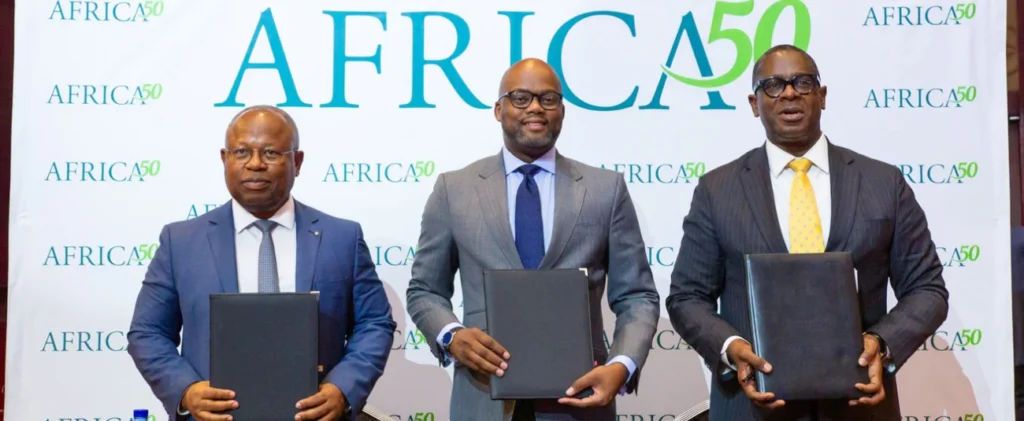AfDB, AfCFTA, and Africa50 Forge Pact to Unlock $3.4tn Market
The African Development Bank Group (AfDB), the African Continental Free Trade Area (AfCFTA) Secretariat, and Africa50 have entered into a historic partnership to accelerate infrastructure development across Africa and unlock the potential of the continent’s $3.4 trillion single market.
The tripartite Memorandum of Understanding (MoU), signed during the Africa50 General Shareholders’ Meeting in Maputo on Wednesday, sets out a joint framework to identify, design, finance, and implement strategic infrastructure projects that will transform trade across Africa.
The agreement seeks to address the continent’s pressing infrastructure gaps, which have long constrained intra-African trade, currently standing at just 15–18% of total trade, compared to 68% in Europe and 59% in Asia. The new initiative will focus on transport corridors, cross-border infrastructure, logistics hubs, ports, airports, and digital trade platforms, with the goal of lowering trade costs and improving competitiveness.
Solomon Quaynor, AfDB Vice President for Private Sector, Infrastructure and Industrialisation, highlighted the Bank’s role in financing connectivity projects: “The African Development Bank has invested over $55 billion in regional economic corridors, ports, railways, and power pools over the past nine years. This agreement underscores the critical importance of transport and trade infrastructure in realising the AfCFTA’s promise.”
Africa50 Chief Executive Officer, Alain Ebobissé, said the partnership would catalyse the development and financing of “trade-enabling infrastructure” to accelerate economic integration.
The collaboration will be anchored on six pillars: alignment with AfCFTA and regional policies, identification of bankable projects, mobilisation of capital through innovative finance, robust tracking and monitoring systems, stakeholder engagement, and strict adherence to environmental, social, and governance (ESG) standards.
Wamkele Mene, Secretary-General of the AfCFTA Secretariat, told delegates that the deal was a pivotal step in doubling intra-African trade by 2030: “Africa faces an unprecedented challenge, but also a unique opportunity. Infrastructure development is the heartbeat of trade and essential to building a truly integrated African market.”
The three-year MoU will be operationalised through detailed work plans and implementation agreements, supported by technical working groups. The initiative is expected to fast-track Africa’s integration agenda while positioning the continent to compete more effectively in the global economy.



